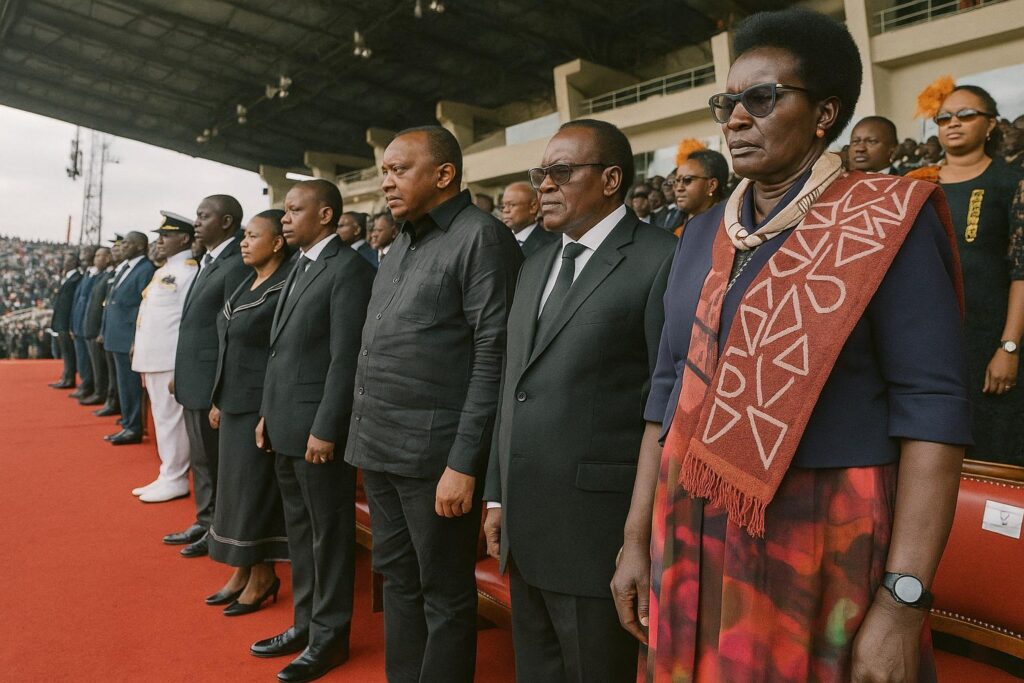A Silent Gesture, Loud Symbolism
When Vice-President Rebecca Nyandeng de Mabior sat among mourners at Raila Odinga’s state funeral, cameras sought a political explanation. Her team clarified she came as family friend, not envoy, yet the moment carried diplomatic weight for both Juba and Nairobi.
Roots in a 1960s Prison Meeting
John Garang first met Kenyan trade-union firebrand Arthur Aggrey Ochwada inside Kamiti Prison in 1963. Ochwada’s appeal to Minister Jaramogi Oginga Odinga secured Garang’s release, forging a bond that would shape two liberation struggles across borders.
Garang Family’s Kenyan Second Home
Exile turned opportunity: Garang studied, farmed and raised children in Kenya. Land purchases and businesses anchored the family in Laikipia and Kiambu, embedding them in local society long before South Sudan’s independence.
Agriculture Over Oil Vision
Mabior Garang’s Tomato Revolution Farm near Nairobi illustrates his late father’s creed that food security underpins sovereignty. Visitors describe drip-irrigated greenhouses and on-site processing as proof of a self-reliant South Sudanese future beginning on Kenyan soil.
Friendship Renewed Through Generations
Fidel Odinga and Mabior Garang maintained their fathers’ camaraderie, frequenting Nairobi’s social circuit until Fidel’s death in 2015. At the Bondo farewell, Mabior requested a purely mournful ceremony, echoing mutual respect that transcends partisan platforms.
Kenya’s Mediator Role in South Sudan
From the 2005 Naivasha Comprehensive Peace Agreement to the recent Tumaini Initiative, Nairobi’s facilitation has remained pivotal. South Sudanese analysts credit Kenya’s relative stability for offering neutral ground where warring factions can negotiate.
Why Nyandeng’s Attendance Matters
By choosing family over protocol, Nyandeng reminded observers that bilateral diplomacy often rests on personal trust. Analysts suggest such ties could ease future trade talks, border cooperation and refugee support between the two neighbours.


